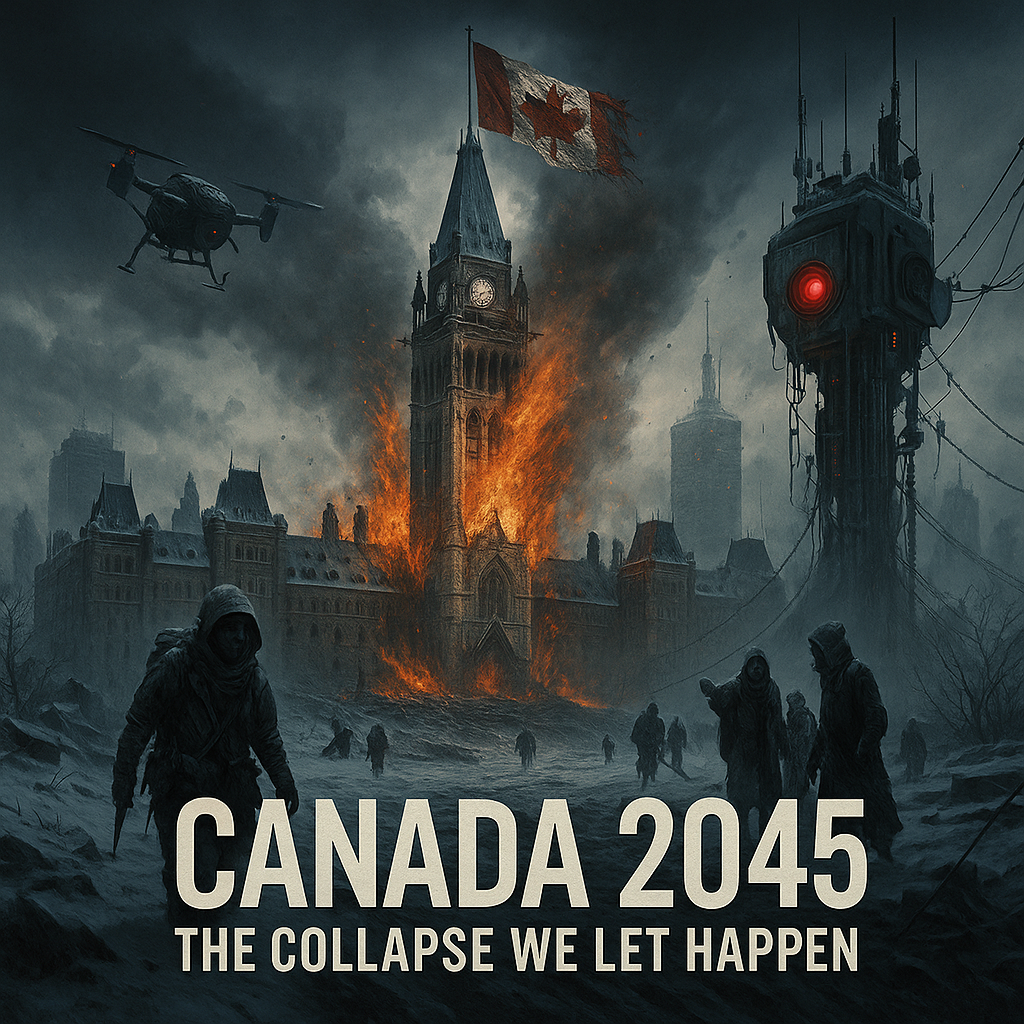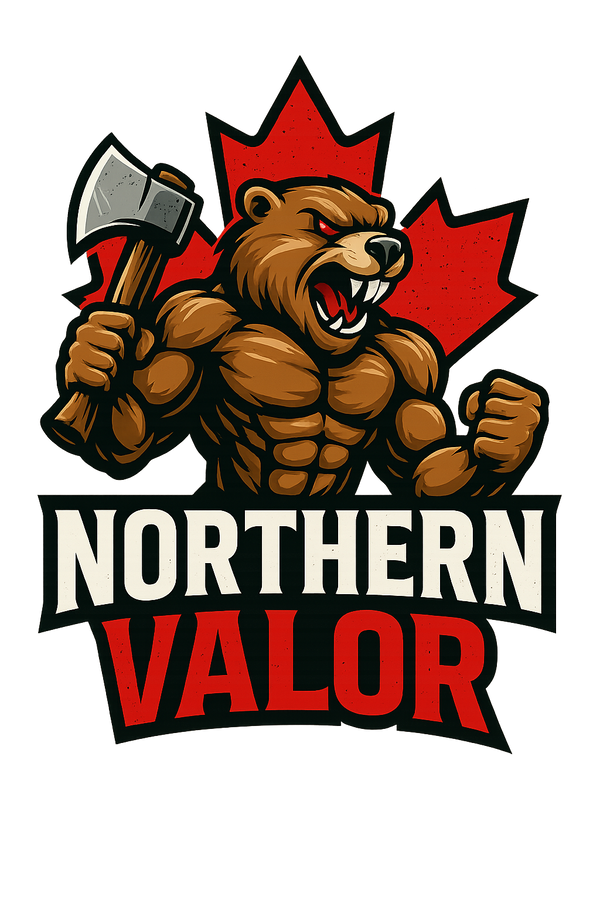
Canada 2045: The Collapse We Let Happen
Share
Welcome to the New North.
The year is 2045. Canada is unrecognizable.
Once a symbol of peace, order, and maple-drenched progress, the country has fractured into something colder, darker, and violently digital. The Canada you once knew — of friendly neighbours, universal health care, and a polite, functioning democracy — has withered under decades of denial, greed, and surveillance.
The collapse didn’t happen overnight. It was a slow rot. A thousand decisions made for profit, not people. A thousand opportunities missed to act before it was too late. We told ourselves we were different. Smarter than the Americans. Kinder than the Europeans. More stable than the Global South. But hubris is a funny thing. It always blinds just long enough to guarantee the fall.
Now, the forests of BC are gone, burned to ash by fires that never end. Storms batter the Maritimes like clockwork, swallowing entire coastlines beneath rising seas. The Prairies have become brittle, dust-choked plains where crops no longer grow. What’s left of the North has melted into open trade routes patrolled by foreign military vessels — mostly Chinese and Russian, both daring enough to claim the Arctic Canada once considered sovereign.
The federal government, crippled by decades of debt and public distrust, lost its grip long ago. In its place, massive tech-corporate alliances carved the country into economic zones. Toronto, Calgary, and Vancouver have transformed into fortified megacities — cold, sterile domes of glass and silicon, where only the rich are safe. Within them, life is algorithmically curated: meals delivered by drones, behavior tracked by implants, access to food, water, and medicine dictated by social credit scores.
Step outside these corporate safe zones, and the real Canada begins — the one most people live in. Abandoned suburbs decaying into wastelands. Pop-up shantytowns filled with the forgotten. Formerly quiet towns now governed by militias, warlords, and opportunists. Violence is common. Trust is rare. And hope is something whispered, not believed in.
Healthcare, once a national point of pride, no longer exists for the average person. What used to be universal has become entirely pay-to-play. If you can't afford bio-verification and AI diagnosis fees, you're left to barter with black-market medics or suffer in silence. Clean water is a currency now, privatized and sold back to Canadians by foreign-owned firms who bought it all up during the early collapse. And food? Genetically modified slop, rationed through nutrient stations accessible only to those whose digital identity is in “good standing.”
Technology hasn’t saved us — it has enslaved us. Everyone is chipped. Movement, purchases, conversations, emotions — all logged and scored. You don’t get to opt out. The phrase “Terms of Service” replaced the Canadian Charter of Rights and Freedoms somewhere along the way. It wasn’t announced. It didn’t need to be. The people simply stopped caring… or were too distracted to notice.
Elections are still held, technically. But the candidates are AI-curated holograms — avatars constructed from approved political speech models and focus group data. The real decisions are made in neural networks buried beneath the Rockies, funded by trillion-dollar corporations who answer to no one. Parliament Hill still stands, but it’s a shell — a tourist attraction powered by nostalgia and propaganda.
Civil unrest brews constantly in the shadows. In Saskatchewan and parts of Northern Ontario, armed militias control territory like old-world fiefdoms. In Quebec, a hardline separatist regime has taken over parts of the province, driven by a militant blend of eco-nationalism and AI resistance. Indigenous nations, betrayed yet again by federal inaction, have gone sovereign in every sense — defending their land with skill, sacred fire, and makeshift EMPs designed to repel corporate drones.
Even in the darkest corners, underground networks of dissidents, thinkers, and survivors fight to preserve what’s left of real Canadian culture. They carry books — banned ones. They speak old truths in coded language. They teach children history that hasn’t been rewritten by neural algorithms. And they dream, perhaps foolishly, of reclaiming the nation.
But what is Canada anymore?
Is it a logo? A nostalgic meme? A collapsed identity propped up by digital memories and synthetic maple leaf emojis?
Or is it a warning to the rest of the world?
We once believed Canada was immune. Too stable. Too boring to fall apart.
But collapse doesn’t come with an explosion. It comes like frostbite — slowly, silently, then all at once.
If you’re reading this in the present… take this not as fiction, but as prophecy.
There’s still time — barely.
🔥 Final Warning:
The Maple Leaf doesn’t burn all at once. But it can burn.
And if it does, it will be because we were too polite, too passive, and too late to stop it.
